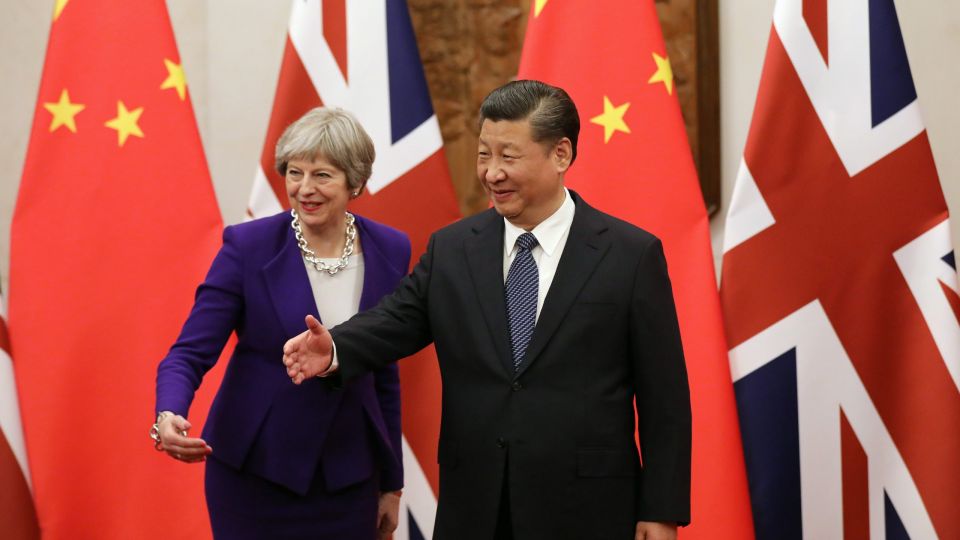July 6, 2018
Both Chinese state media and diplomats have been courting the EU as countries across the globe put in place retaliatory tariffs against the United States.
The European Union, Mexico, China and Canada have put in place retaliatory tariffs against Trump’s economic policies. As more and more measures are put in place, the Chinese governments have been reaching out to the EU both to increase trade and economic solidarity.
Premier Li Keqiang called on the European Union to work with China to cope with challenges by expanding cooperation and common interests amid rising unilateralism and protectionism, according to the China Daily.
Li made the comment on a phone call with EU Commission President Jean-Claude Juncker on Wednesday, a day ahead of his visit to Bulgaria and Germany.
According to the China Daily, Li said China must work with the EU in upholding multilateralism; promoting trade liberalization and investment facilitation; and safeguarding world peace, stability and development.
Diplomatic sources tell ANN that China has used back channels to float the idea of filing a joint Chinese-EU complaint with the World Trade Organization over US actions. So far Brussels has rebutted such measures over fears of increasing Chinese influence and the EU’s unease at Chinese expansion into Central and Eastern Europe.
Central and Eastern Europe
Central and Eastern European countries play a very important role in the Belt and Road Initiative and China’s trade with Europe. The inclusion of the “16+1 cooperation” mechanism in the Belt and Road Initiative is one of the most important and promising elements for the CEE countries, according to Chinese state media.
The 16 CEE countries see China as a relevant market and a valuable source of investment, at least at the declarative level. The differences across the region are significant in many areas, including the economic development level, per capita income and institutional framework.
And Brussels is concerned about reciprocity and access to the Chinese market for European companies.
Li, in a statement, said that he has made an effort to calm the EU worries about Chinese inroads into Eastern and Central Europe.
On the upcoming seventh Leaders’ Meeting of China and Central and Eastern European Countries in Bulgaria this week, Li told Juncker that China firmly supports European integration and wants to see a united, stable and developing EU.
China-CEEC cooperation is an open, transparent and inclusive cross-regional organization, and a vital part of and helpful supplement to China-EU relations, Li said.
The world’s second-largest economy has adhered to international rules and EU laws and regulations in its cooperation with CEE nations, which is beneficial to more balanced development in Europe and its integration process, the premier said.
European companies are welcome to join the “16+1” mechanism to achieve win-win outcomes.
China will not fire first shot against US in trade war
China will “absolutely not” fire the first shot in a trade war with the United States and will not be the first to levy tariffs, the Ministry of Finance said on Wednesday.
The ministry’s comments came as certain foreign media, citing anonymous sources, said China’s tariffs on $34 billion of US goods would take effect from the beginning of the day on Friday. Given the 12-hour time difference, that would have put its implementation ahead of Washington’s.
“The Chinese government has stated its position many times. We absolutely will not fire the first shot and will not implement tariff measures ahead of the US doing so,” the Ministry said.
The trade spat between the world’s two largest economies has been in the spotlight for about three months, since US President Donald Trump signed a presidential memorandum in March threatening tariffs on Chinese imports.
The US said it would add tariffs on $34 billion of Chinese imports on July 6. China was forced to respond in kind.
Li Yong, a senior fellow with the China Association of International Trade, said the unilateral actions of the Trump administration are shortsighted and counterproductive.
“They go against both global interests and the long-term interests of the two countries involved. The consequences of these actions might not be what the White House expects, and in the end, they will only serve to hurt the US itself,” Li said.
Fitch Ratings’ report says the global multiplier effect of lower US imports could be significant, and US outward foreign direct investment would probably fall. Along with weaker confidence and lower investment, a global tariff shock would also hit job creation.


